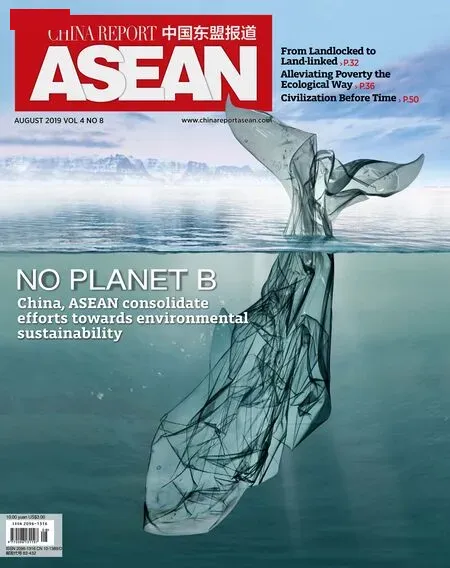NO PLANET B
In cities, streams of automobiles gallop past urban skylines, emitting a perpetual plume of exhaust fumes. At factories, production lines run day and night, excreting pollutants into the air and water. In mountains, mining for ore is performed relentlessly and forests are cleared to make way for farmland. Along the shores, ships roaring away from the harbors while fishing vessels return loaded with their catches. Such scenes are commonplace these days. Human beings have benefitted greatly from the economic growth and improved living standards through industrialization while Mother Nature is exploited and damaged. Decades of destruction have caused various environmental problems that exert a severe impact on the living quality of humanity and other creatures on Earth.
Such problems have also plagued China as a result of the country's leapfrog economic development and previous insufficient awareness of environmental protection. In recent years, the Chinese government has taken measures at an unprecedented scale to solve environmental issues. Chinese President Xi Jinping has reiterated the importance of this effort on many occasions. “Building a green home is the common dream of mankind,” he remarked. “We should make efforts to promote greening of land and build a beautiful China while leveraging multilateral cooperation mechanisms such as the Belt and Road Initiative to jointly improve the environment, actively respond to global ecological challenges such as climate change and make due contributions to safeguarding global ecological security.”
What must be done to keep the Lancang-Mekong River clean and clear? How can we ensure that blue oceans survive into the future? How can we eliminate smog and protect our blue skies? Where to dump all the garbage? Such questions are faced by China and ASEAN countries alike. Environmental pollution has become the most pressing issue arising from development and is closely related to people's livelihood worldwide as well as the survival and future of all living creatures on our planet. The outdated after-the-fact strategy from developed economies has proved unworkable and should be avoided. Rather than an internal drive of single country or a region, ecological conservation demands joint efforts from all nations. The concept of building a green home cuts straight to the core essence of the vision of building a community with a shared future for mankind.

Two men and an elephant bathe in the lower section of the Mekong River in Laos.
- China Report Asean的其它文章
- CHINESE, VIETNAMESE COMMUNIST PARTIES HOLD 15TH THEORY SEMINAR
- SEIZING SUSTAINABLE SOLUTIONS CHINA SETS THE STANDARD FOR ALLEVIATING POVERTY AND PROMOTING ONGOING GROWTH
- CHINESE VP MEETS MALAYSIAN DEPUTY PM
- 2019 CHINAASEAN EDUCATION COOPERATION WEEK
- GREAT ACHIEVEMENTS FROM GREEN BELT AND ROAD
- LI: MORE OPEN, TRANSPARENT, PREDICTABLE CHINA FOR FOREIGN INVESTMENT

